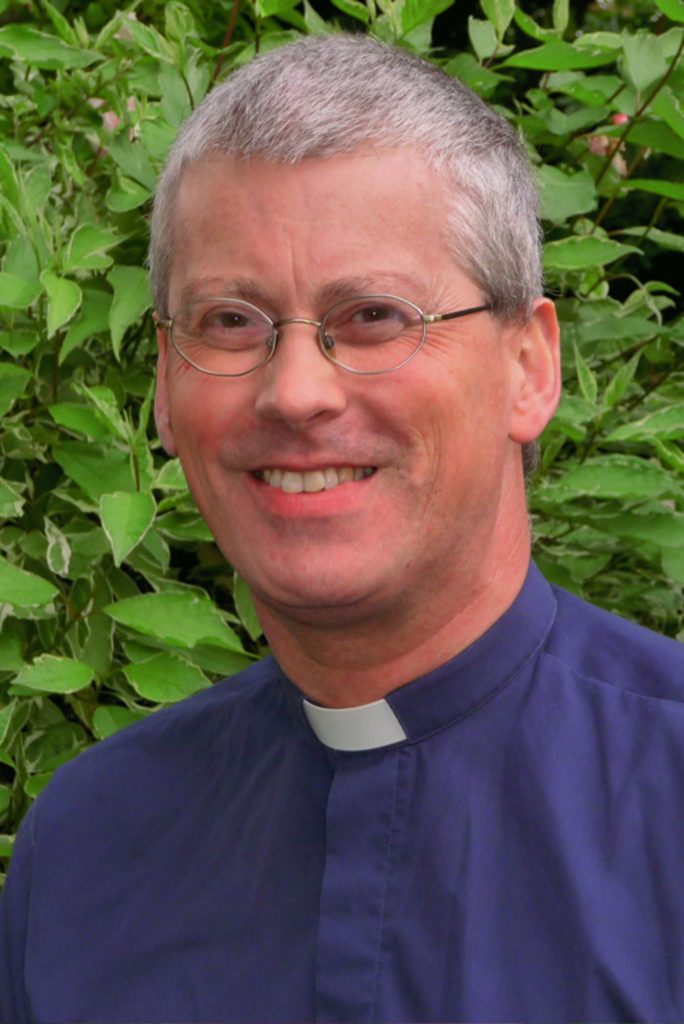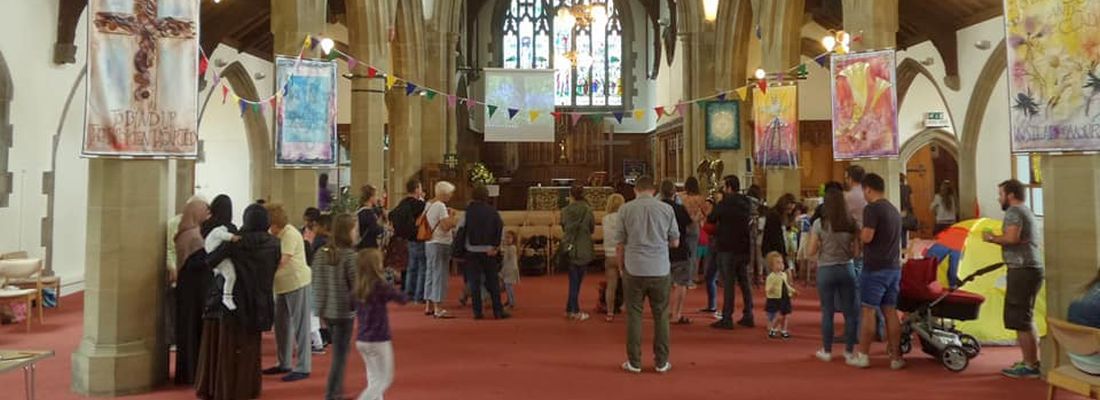A Weekly Message during Lockdown from St Peter’s Vicar, Rev John Rainer
Click here to read this week’s Church Noticesheet
I am writing this on Holocaust Memorial Day, an important moment in the year for Christians to pause and remember that belief in the Gospel involves opposing all forms of anti-Semitism and racism – which sadly remain entrenched in many areas of our nation’s life. This is also the day when Bradford recorded 1,000 deaths from Covid 19 and when the death toll from the disease surpassed 100,000 in the nation as a whole.
At a time when we are desperate for some better news, these facts challenge us and weigh us down; we are already separated from our friends and sections of our families, and wonder where we are going to find the resources for tomorrow.
I have been reminded recently that large parts of the Bible were written at moments when the people of God were struggling. Much of the Old Testament was produced at a time of exile. The entire New Testament was written in areas under Roman occupation and rule. The people of God were forced by their circumstances to ask themselves under whose authority they were living. We need to ask ourselves the same question. Do we really believe that Jesus Christ is Lord of heaven and earth? The times we live in will test that belief to the limit, and there is a sense in which God is waiting to see whether we will trust Him even when He seems to be absent.
This is a pattern which occurs time and again in the Bible. The Israelites rescued from Egypt found themselves tested for forty years in the desert. The exiles in Babylon and Persia had to wait seventy years before it became possible for them to return. In the New Testament we see Jesus leading his disciples into one situation after another where they were tested to the limit despite being a group of very tough young men. Why? Because they were being taught that the resources we need to live by are not found within ourselves, but in the Holy Spirit who by grace lives within us. We are called to demonstrate that an alternative authority governs our lives.
In the 1930’s when the national church in Germany agreed to apply the Aryan doctrine to the church, Deitrich Bonhoeffer, Martin Niemoller and Karl Barth called on Christians to oppose the racism of the Nazi regime, and acknowledge Jesus Christ rather than Hitler as their leader. In the USA in the 1950’s and 1960’s, Martin Luther King and Rosa Parks were not content with the laws of the land, recognising that God had created all people equal. Our lives and the church’s flourishing are not dependent on the political leadership of our time, and we are called to demonstrate integrity and commitment to another kingdom. Learning to have confidence in who has ultimate authority in this world is not optional for Christians – and perhaps the hard times we are living through are one of God’s ways of teaching us to trust Him in a way which we have not so far done.
If, like me, you have been reading through the book of Hebrews, you may have noticed that the last two chapters are full of practical advice about our life with each other and in the world. Whilst challenging, it’s all good!
Karl Barth wrote : “The church exists to set up in the world a new sign which is radically dissimilar to the world’s own manner, and which contradicts it in a way that is full of promise”. Radical difference and hopeful promise must shape our mission and practice as we seek to address the future as subjects of another kingdom.
With love and prayers,
John Rainer

Ever-present God,
be with us in our isolation,
be close to us in our distancing,
be healing in our sickness,
be joy in our sadness,
be light in our darkness,
be wisdom in our confusion,
be all that is familiar when all is unfamiliar,
that when the doors reopen
we may with the zeal of Pentecost
inhabit our communities
and speak of your goodness
to an emerging world.
For Jesus’ sake. Amen
Click here to view previous blogs or here to view our Church Online Hub

